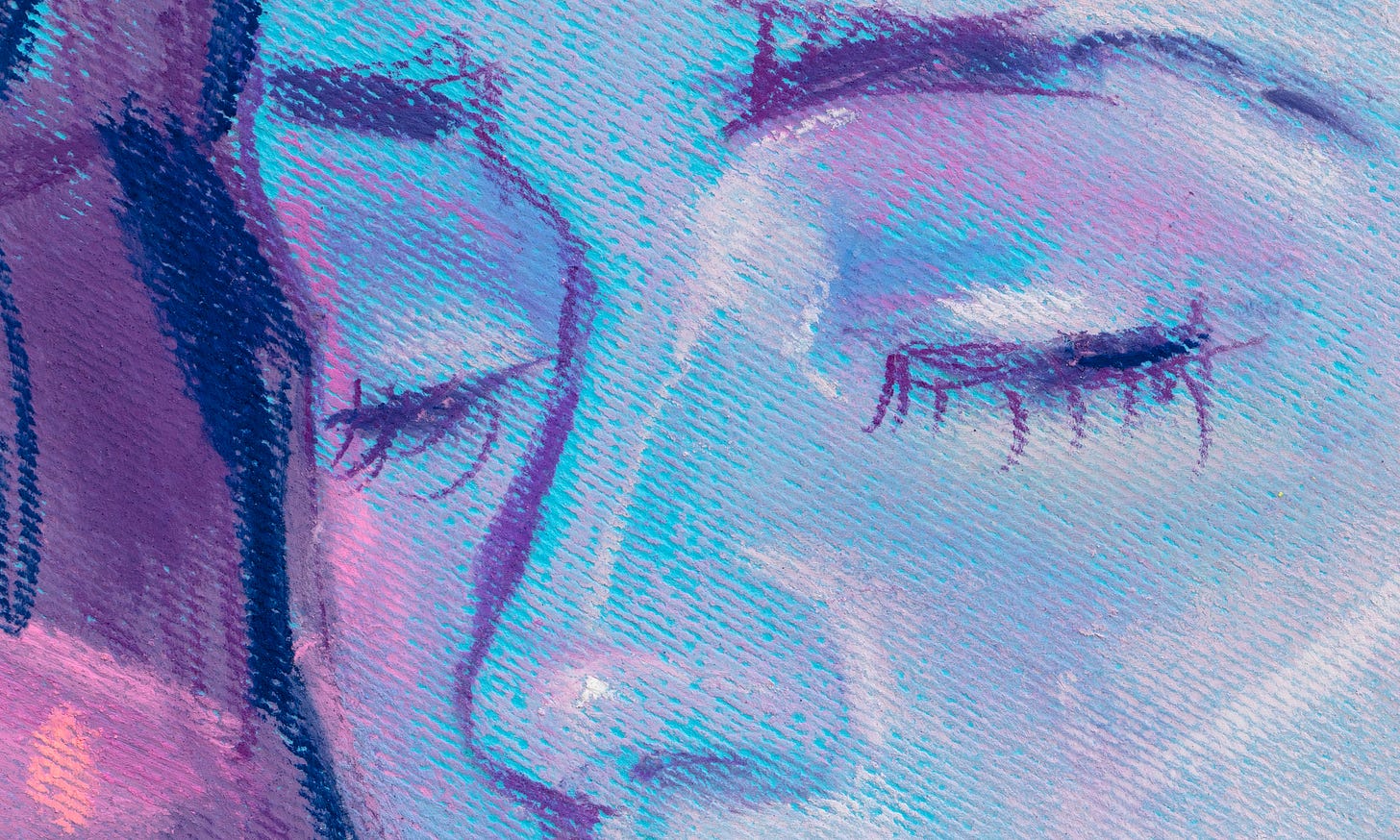We all love youth. So what happens when we aren't young anymore?
“I learned that becoming the best version of myself has everything to do with making peace with who I am in the present moment.”
By Abigail Pickus
I had gone to see my internist for some unremarkable ailments: the extra weight I couldn’t seem to lose, the hormone pellets that were causing pain.
But then it morphed into me confessing that I just didn’t care that much anymore, about, well, anything.
“You’re suffering from something called anhedonia,” my doctor told me.
A psychiatric disorder first identified in the late 1800s, it refers to the reduced ability to experience pleasure. This assessment cheered me up considerably.
“I know he’s out of favor now, but Woody Allen wanted to call Annie Hall ‘Anhedonia,’” I informed the doctor, thrilled that this one odd word had resurfaced after so many years of dormancy. It brought me back to the 1980s when, as a teenager, one of my favorite anti-heroes was the neurotic, bespectacled Woody Allen (he wasn’t accused of being a pedophile back then).
As I drove home from my appointment, the memories came fast: of sitting on the big beige couch smack dab in the middle of our family’s living room watching a few movies on repeat, from Sixteen Candles to Annie Hall to…The Partisans of Vilna (true story). Wrapped safely in a cocoon of love and security, my whole life stretched out before me with boundless possibilities.
Flash forward nearly 40 years later and here I am: a middle-aged woman trying to raise a child solo, worrying about, well, everything.
On top of that, I wake up everyday feeling like a stranger in my own body. My hair, once shiny and soft, is a weird frizzy texture and is coming out by the handful. The bags under my eyes are so pronounced that my son suggested I never remove my glasses. And the times that I do take them off are when I need to read, just like my dad used to.
The most horrible insult of all is the extra weight that clings to me like the “fatty suit” Amy Sedaris wore to horrify her fat-phobic dad. These pounds have come despite a revolving door of diets, grueling Pure Barre classes and, I’m not too proud to admit, the aforementioned hormone pellets, which came with a bunch of pie-in-the sky promises.
No wonder I’m so anhedonic!
As I leaf through books on menopause, from the 90s classic, The Silent Passage, to badass Dr. Jen Gunter’s The Menopause Manifesto, I realize that what I’m really suffering from is not so much psychological as metaphysical; it’s the transformation from my younger self to an older self.
But even though this life transition is in many ways universal, it is mostly unheralded. Women are too often left in the dark about what is happening to our bodies in middle age since what we’re experiencing is a process and not a single biological moment, and this process leads to something our society does not value: old age instead of youth, invisibility instead of desirability.
And yet, I’ve come to the realization that however unwelcome, this life transition is not so much an exodus as a metamorphosis.
As we Jews complete these solemn and holy Days of Awe, we enter into what Rabbi Alan Lew called, a “journey [in which] our soul will awaken to itself. ” The teshuva (תשובה) we undergo, both individually and communally, is a chance to look deep inside ourselves in order to become transformed. It is a chance to begin anew.
I think about all of this as the leaves begin to slowly change to the golden hues of fall that I love so much, and consider something that only those of us who have some living behind us are able to see so clearly. Only with hindsight can we see beginnings or endings, for life, as we live it, is a constant state of becoming.
And with that becoming is a chance to make peace with who we are in this moment — a person we may not have been yesterday but who is still our valued, constant companion; our most sacred self.
As the poet Marge Piercy writes:
“What will be wants
to push through your fingers.
The light you seek hides
in your belly. The light you
crave longs to stream from
your eyes. You are the moon
that will wax in new goodness.”
Abigail Pickus has written for JUF News Chicago, the Jewish Agency for Israel and The Jewish Week. She ran the Nextbook literary series at the Chicago Public Library.
If you like what you’re seeing on JEWDICIOUS, please SHARE our page with family and friends — subscriptions are FREE until the end of 2023!
From navigating the nuances of family and relationships to unpacking history and politics to finding the human angle on sports and entertainment — plus our unsparing take on what’s happening in the Jewish world — the canvas at JEWDICIOUS is limitless!






As a post-menopausal woman of a certain age, I totally related to this! It was awesome! I wish this “passage” were less “silent” in our society.